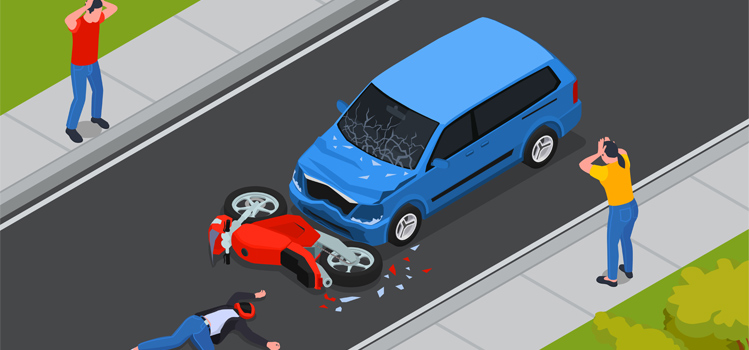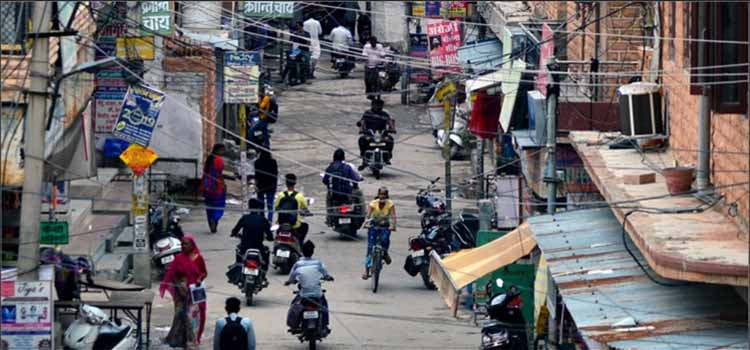Motor Accident Lawyers
Motor Accident Laws in India
Find Motor Accident Laws expert lawyer in India.
|
What is Motor Accident Laws? What is the need for Motor Accident Laws? How is Motor Accident Laws legally recognized in India? Vidhikarya will help you find a most suitable lawyer, for you in your city, who will be able to answer all your Motor Accident Laws related queries and also guide you on how to resolve this matter with ease. |
|
About the Motor Accident Laws |
|
Due to a congestion of cars coupled with neglectful negligence has led to a rise in road accidents. Road accidents are caused due to multiple factors like faulty vehicle, faulty roads, the road user, and so on. |
Regularizing and Legal Recognition of Motor Accident Laws
|
The major legislation in this topic is The Motor Vehicles Act 1988. As per the 7th Schedule of the Indian Constitution, India has a list system according to which the jurisdiction of legislating on certain matters is enumerated. As per Entry 23 of List A to the Seventh Schedule, the subject of motor vehicles is regulated by the Central Government. There is a Union Ministry of Road Transport & Highways. The transport wing of this ministry regulates issues related to road transport which is inclusive of motor vehicle legislation. Some of the laws that are related to the topic are: The Carriage by Road Act 2007 The Motor Vehicles Act 1988 The National Highways Act 1956 The National Highways Authority of India Act 1988 The Control of National Highways (Land and Traffic) Act 2002 The Multimodal Transportation of Goods Act 1993 The Fatal Accidents Act 1855 Indian Penal Code 1860 |
Some important facts and cases about and under Motor Accident Laws
|
The Motor Vehicles Act is applicable to the whole of India. It talks about matters related to the maximum time for which a motor vehicle might be used. Section 59 of the Act gives the power to fix the age limit of a motor vehicle. Central government has the power to make rules as per Section 110, and Section 111 confers the power on State Governments to make certain rules. The speed limit is dealt with under Section 112 of the Act. Various types of offences re recognised as per the Act, to list a few are Sections3-6, 23, 36, 112, 129, 185, 189, and so on. Section 129 is with respect to the usage of protective head gear. Section 185 is with respect to a drunken person driving or a person under the influence of drugs in charge of a vehicle. Due sensitization of the automobile engineers and those connected with sale, servicing and maintenance of vehicles to the provisions of the Motor Vehicles Act 1988 is a functional necessity. Section 304A of the Indian Penal Code confers criminal liability for the rash and negligent acts of a driver. A man who is driving or riding holds a definitive obligation to control his vehicle. Such a man is prima facie blameworthy of negligence if his vehicle dashes into something or somebody unless he has motivation to clarify that he made every effort to monitor the vehicle however the mishap was inescapable. This rule was set up in the milestone case of Ratlam v.s Emperor. On account of Chintaram v.s State of Madhya Pradesh, the deceased was strolling on the widely appealing so the blamed was driving by the left for the street endeavouring to keep a separation from her. At the point when the accused reached near the perished she suddenly took a left turn and got struck by the cruiser. For this situation, the accused was not careless. The whimsical choice of the casualty did not give any sensible time to the motorcyclist to maintain a strategic distance from her so he was acquitted. Some other provisions of the Indian Penal Code which deal with the subject of Motor Accident Laws are Section 279, 336 to 338, 427, etc. |
Search Result : Expert Motor accident Lawyers
Consult Expert Motor accident Lawyers in India
Advocate Abhimanyu Shandilya
Advocate Anik
Bangalore
Advocate Anish Palkar
Mumbai suburban
Advocate Girraj Prasad
Jaipur
Advocate Jaswant Singh Katariya
Gurgaon
Advocate Rohit Dalmia
Mumbai suburban
Advocate J. P. Singla
Faridabad
Advocate Rahul Singh
Varanasi


















